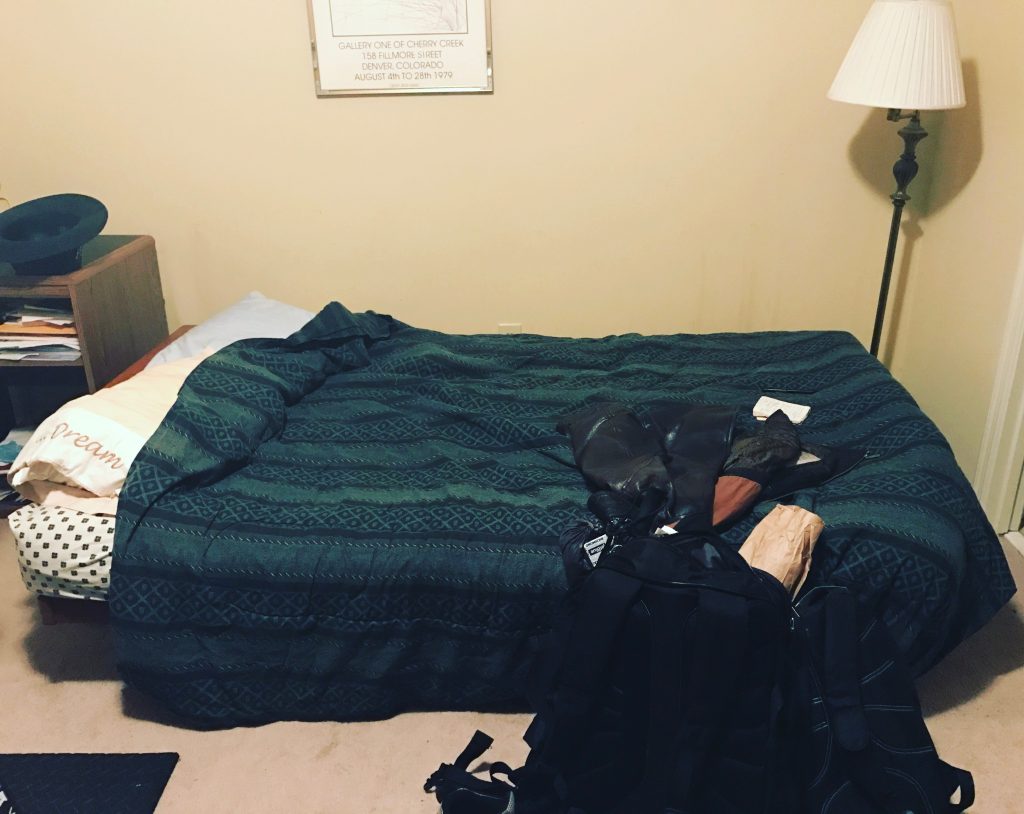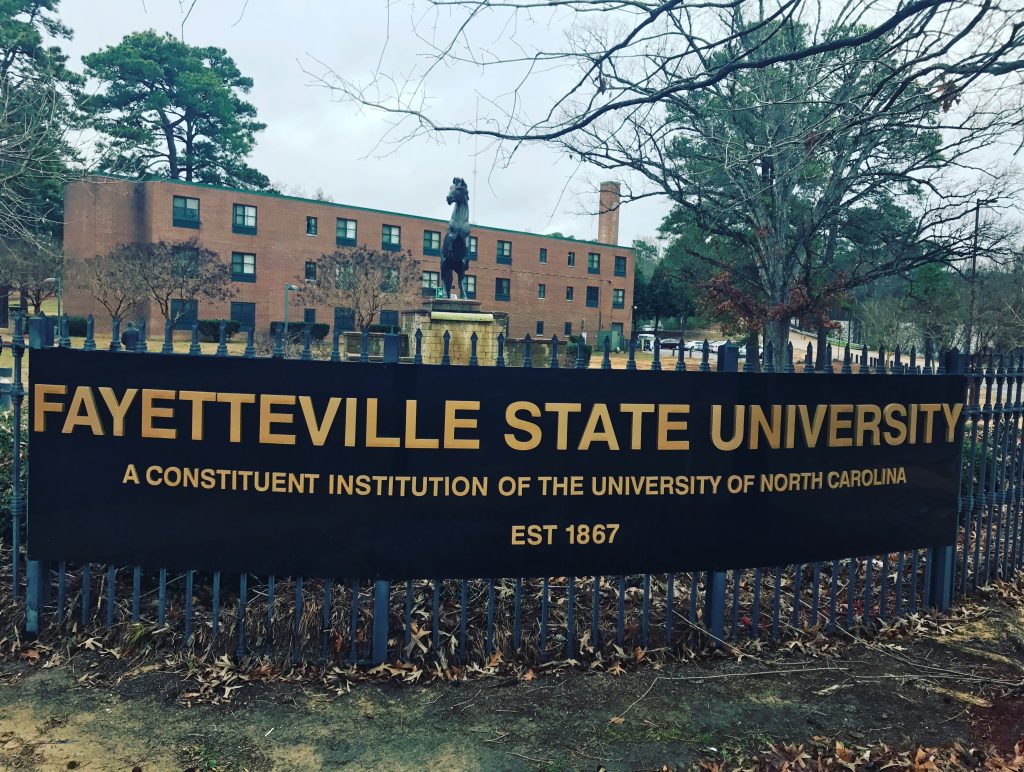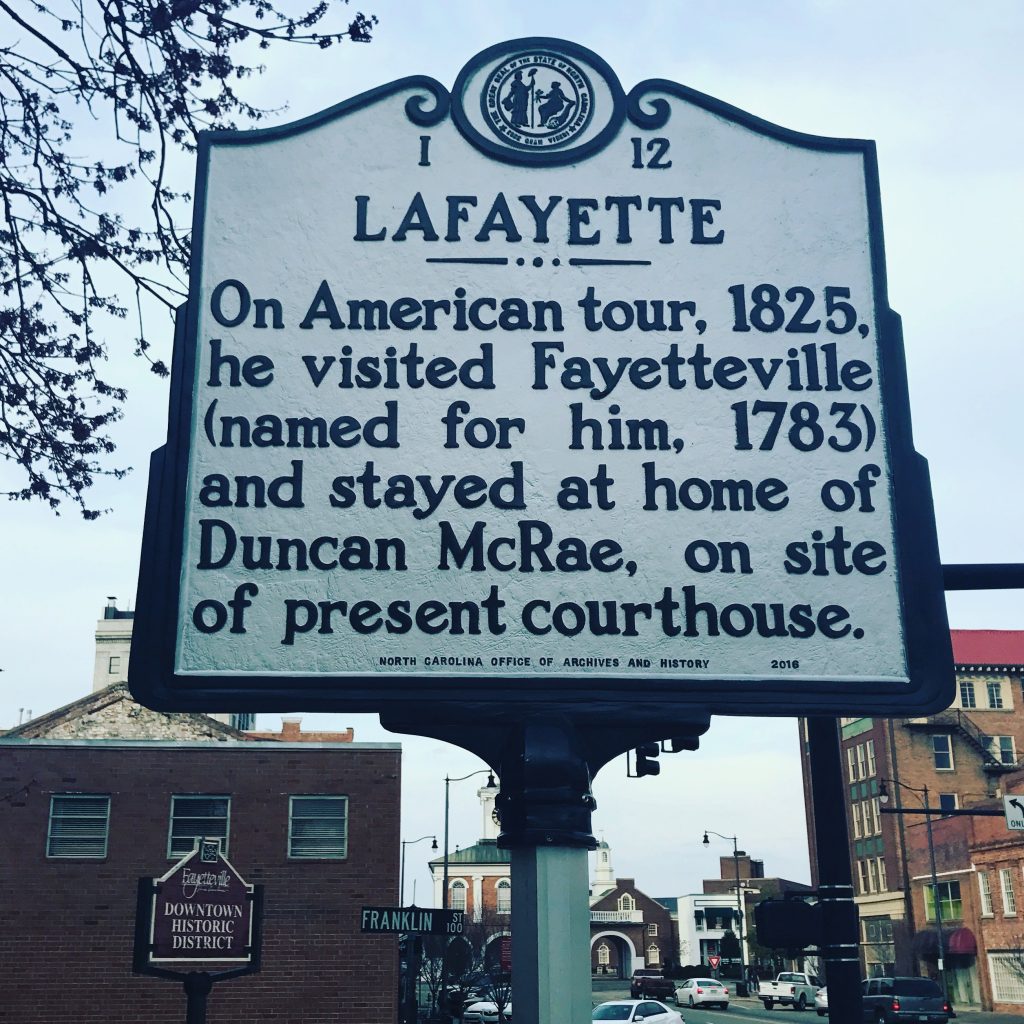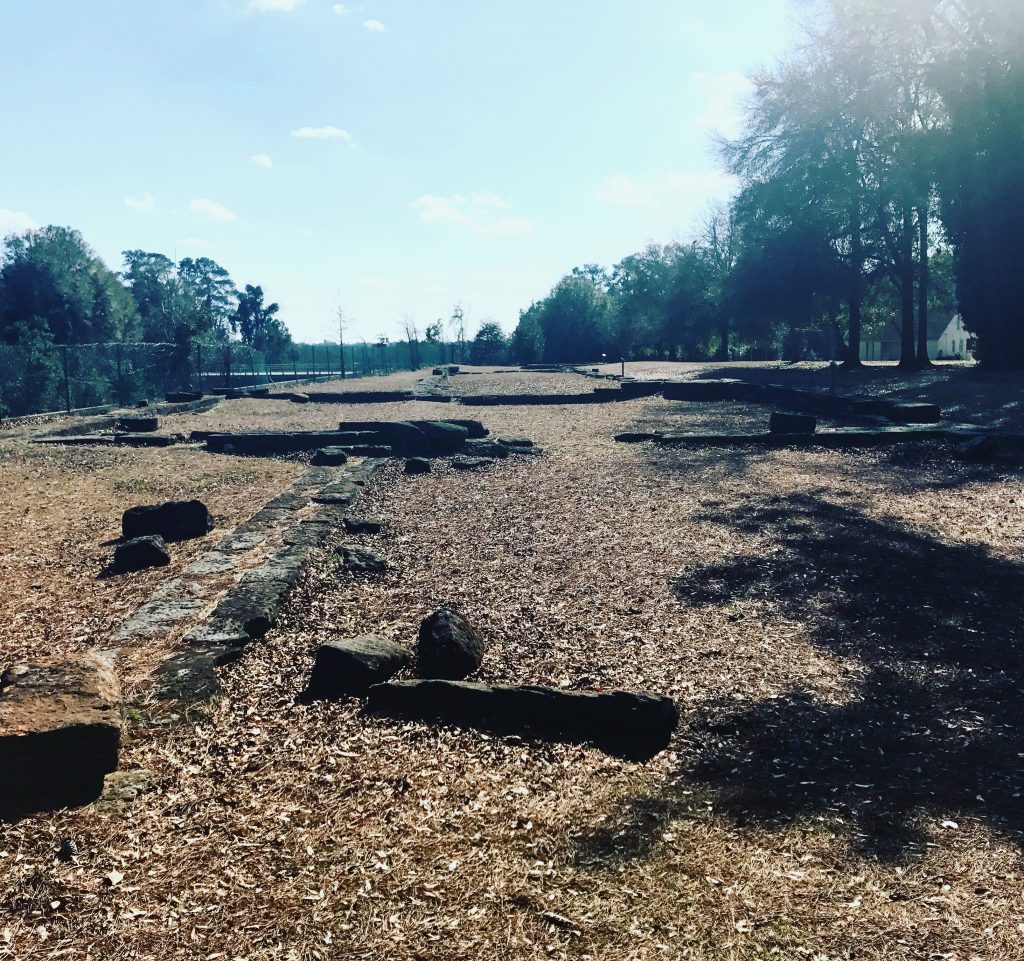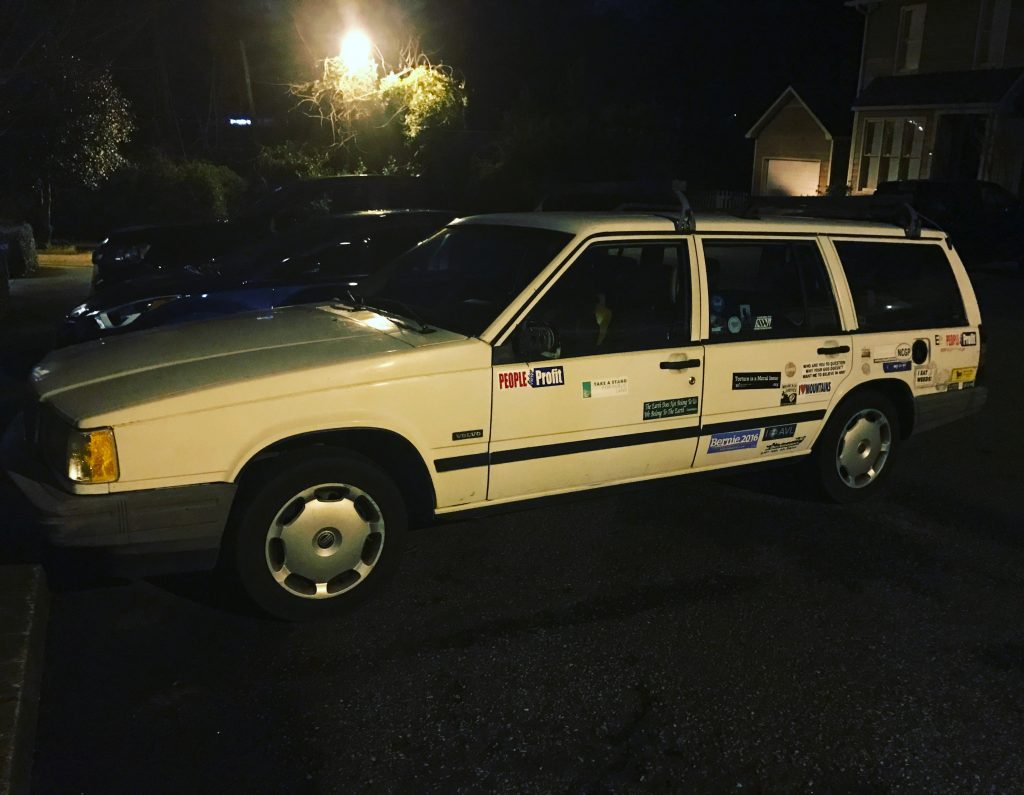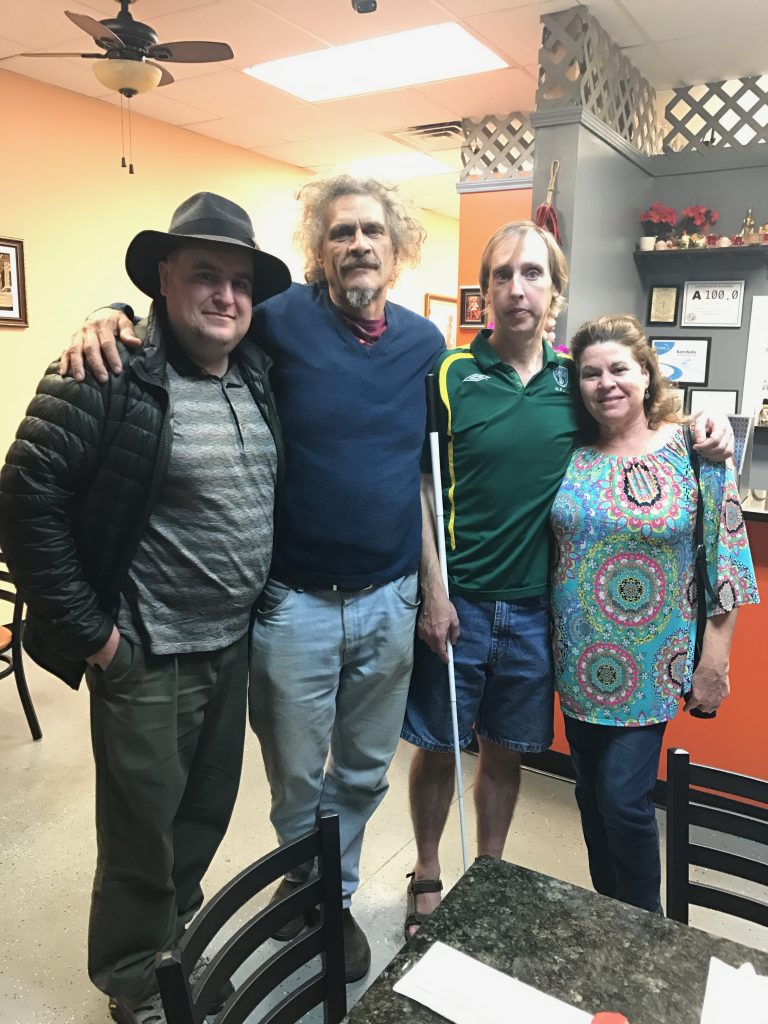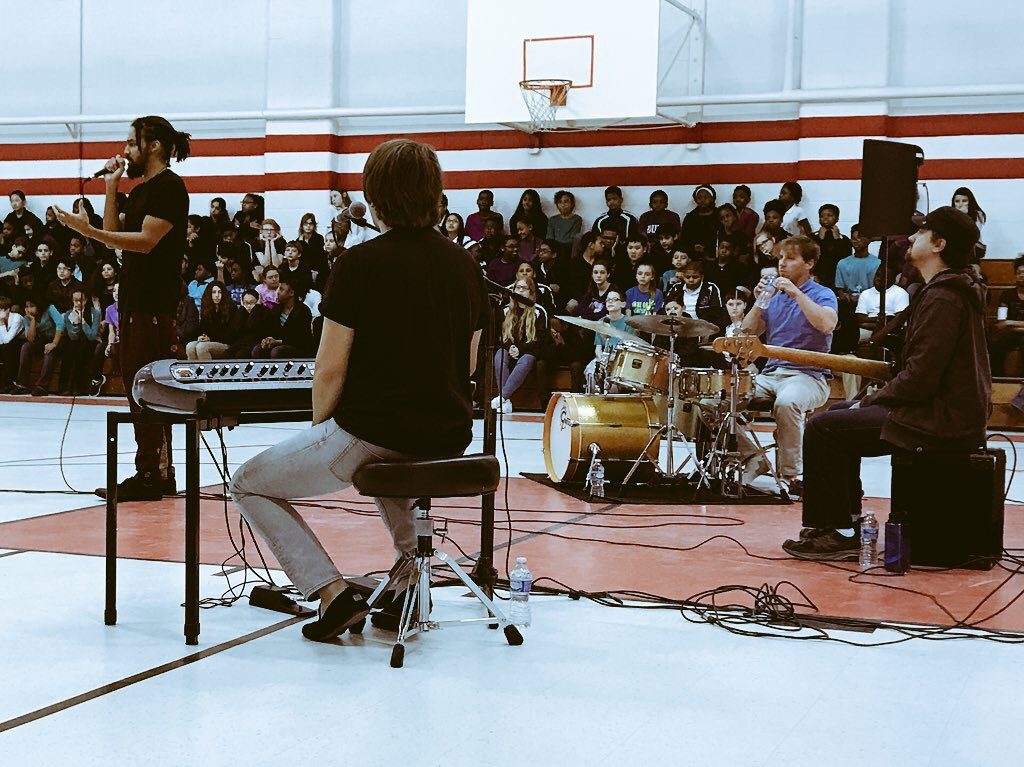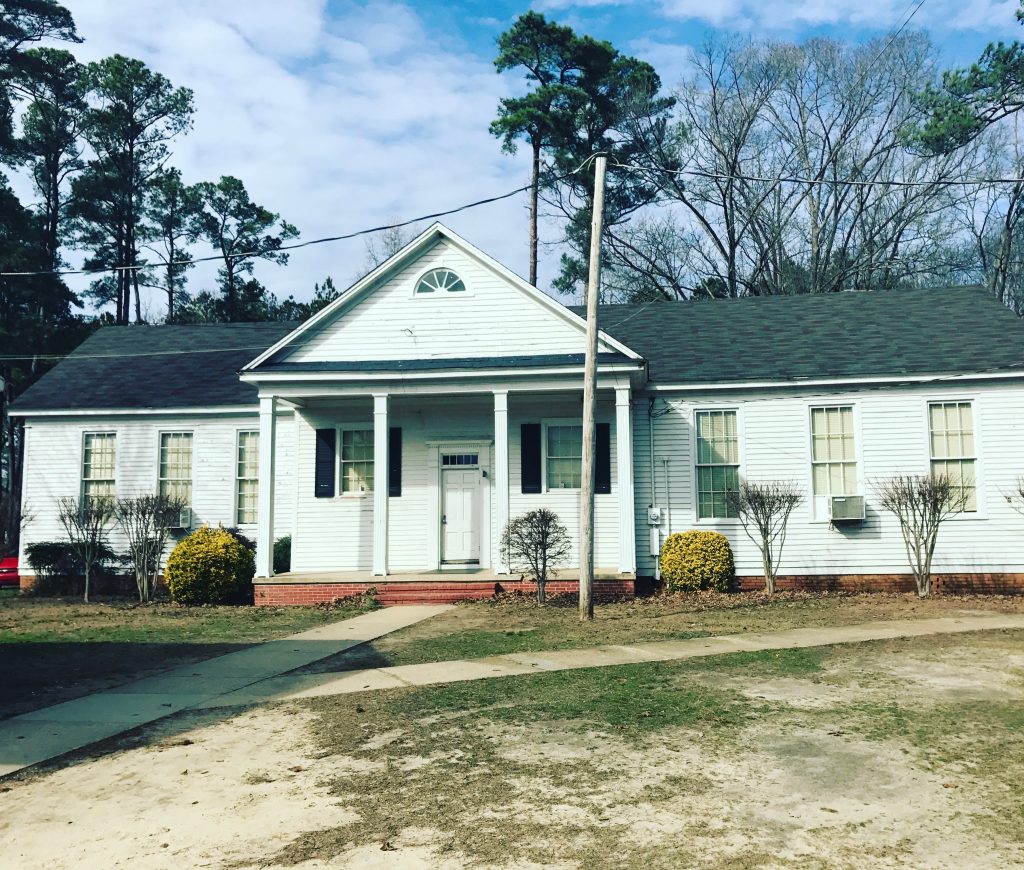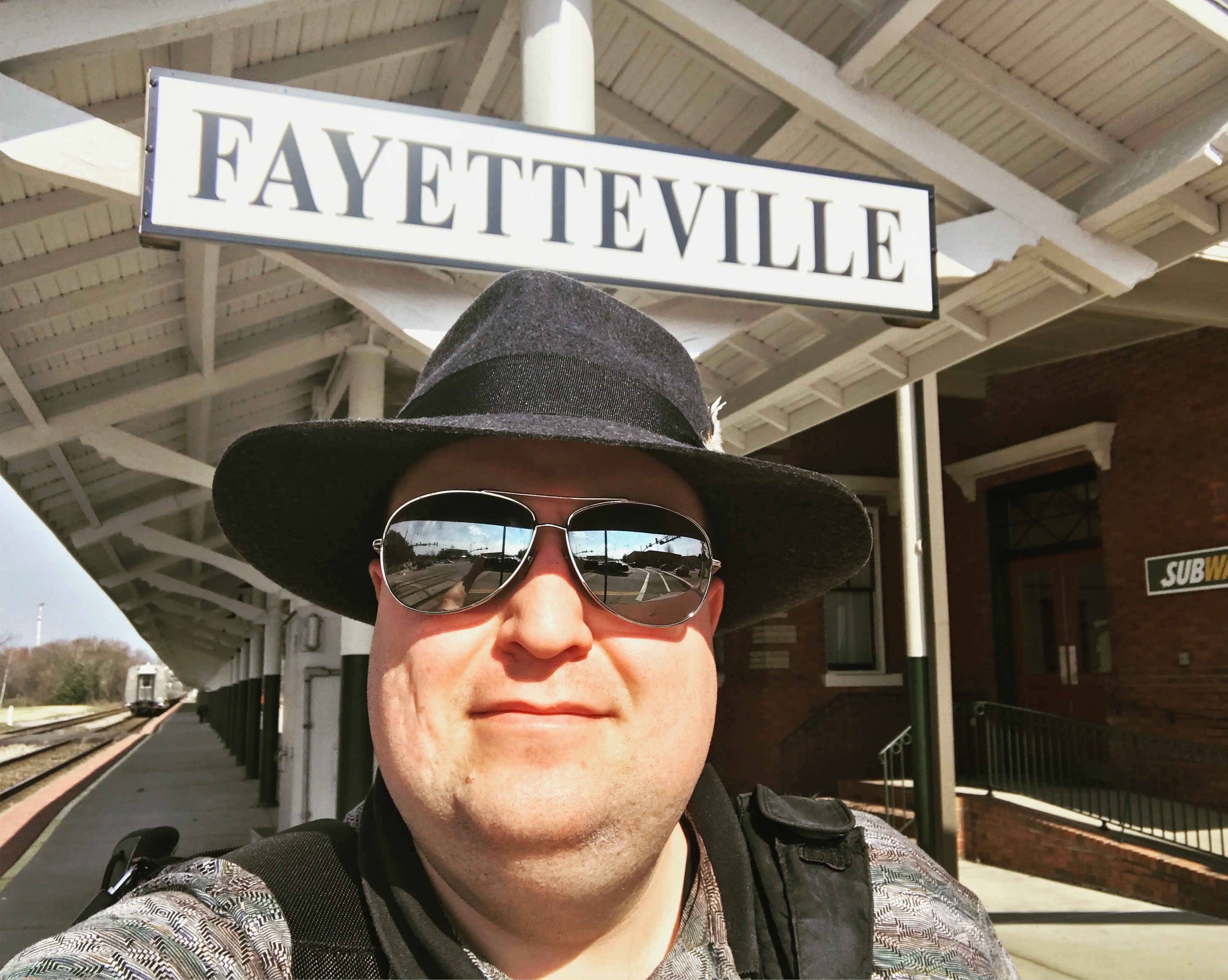
“Most travel, and certainly the rewarding kind, involves depending on the kindness of strangers, putting yourself into the hands of people you don’t know and trusting them with your life. This risky suspension of disbelief is often an experience freighted with anxiety. But what’s the alternative? Usually there is none,” wrote Paul Theroux in Ghost Train to the Eastern Star: On the Tracks of the Great Railway Bazaar.
My plans to visit Fayetteville, North Carolina encountered an obstacle: an area void of accommodations I could afford.
Disembarking the Palmetto Amtrak Train in this small city would require alternative lodging, necessitating the kindness of strangers.
Otherwise, I would need to skip my visit.
Fayetteville would become my first Couchsurfing experience.
Couchsurfing is a global community of 14 million people in more than 200,000 cities who share their life, their world, their journey. Couchsurfing connects travelers with a global network of people willing to share in profound and meaningful ways, making travel a truly social experience.
Hosts enrolled in Couchsurfing open their homes to “Couchsurfers” looking for a free place to stay.
This community envisions “a world made better by travel and travel made richer by connection. Couchsurfers share their lives with the people they encounter, fostering cultural exchange and mutual respect.”
The unconventional arrangement drove up my anxiety.
Looking at host profiles about a month ahead of time, I located one who was a history professor with a residence only a half-mile from the train station and downtown.
He also happened to be completely blind.
I jokingly thought it might increase my chances of him approving my stay if he could not see my profile picture!
After a few messages back and forth, he agreed to let me stay for three nights.
As I arrived in the early evening, I double-checked the address.
There was no indication of a blind person living here.
I am not sure what I expected but nothing set the townhouse apart from the rest.
Taking a deep breath, I rang the doorbell.
A tall, slender gentleman with an average men’s hairstyle, well-kept sandy colored hair and parted slightly to one side, answered the door.
He did not have the white cane or the stereotypical dark sunglasses I associated blind individuals with.
“Had I just knocked on the wrong door?” I thought to myself.
Nervously I said, “Hello…I am looking for Dr. B.”
“Hello Oliver, please come in,” came the reply. “Let me show you to your room upstairs so you can drop off your gear.”
His effortless turn and stride up the stairs caught me off-guard. I reasoned he must be only partially blind.
Entering a room with some gym equipment, he pointed to an already neatly made bed in the back of the room along with the bathroom off to the side.
I was thrilled to getting more than just a couch and mused over the paradox that my free accommodations here were actually better than the motel I had just left in Dillon.
After settling in, I joined Dr. B back downstairs at his kitchen table. I learned he was from the Midwest and had earned his degree from the University of Wisconsin-Madison.
“My dissertation was the study of drink and culture in Ireland during the 1800’s,” he explained as he readily grabbed a hardcopy among the books on a nearby bookshelf.
There was no braille on it.
I desperately wanted to know how he knew where the shelf and book was but decided to tread lightly on the topic of sight so early in our dialogue.
The synopsis of his dissertation partially read, “The vibrant Irish public house of the nineteenth century hosted broad networks of social power, enabling publicans and patrons to disseminate tremendous influence across Ireland and beyond. During the period, affluent publicans coalesced into one of the most powerful and sophisticated forces in Irish parliamentary politics.”
“Indeed, it was a dissertation on Irish pubs. And I thought I was cool for having a thesis that involved two trips across Siberia,” I privately thought.
As I became more comfortable, I broached the topic of his sight.
Dr. B had been legally blind his whole life. He had lost all visual acuity during graduate school six months before heading to Ireland for his research. Everything was now dark. He successfully completed his PhD in 2004 before relocating to Fayetteville for a tenured Professor position at Fayetteville State University.
Later that evening, Dr. B invited me to join him and his friend for dinner.
Trish was a lifelong local and also worked in education as a school principal.
She prepared an Indian lentil stew, while Dr. B prepared the rice.
“A blind guy that can cook something?” I thought to myself.
My only task was to open a can of soup for the stew.
Sadly, I could not get the can opened and instead Dr. B demonstrated to me the proper use of a can opener!
After dinner, Jane, his neighbor joined us for an after dinner drink. She volunteered at Cape Fear Regional Theatre, a local playhouse, and arranged for me a ticket for the production of Disney’s The Little Mermaid.
The following morning, I joined Dr. B on his morning commute as I had mentioned I wanted to visit the University.
As we stepped outside, the white cane came out.
The walk to the bus stop began not on a sidewalk but alongside a road.
I asked him if he needed any help identifying any obstacles such as the parked cars.
“No, I can see them with sound,” he explained as he gently tapped the white cane ahead and maneuvered around.
Stunned that a supposedly blind man could deftly avoid obstacles I skeptically asked, “See them with sound? What does that even mean?”
“I can hear my tapping deaden as I get close to objects. It’s actually not that hard. You could do it too if you tried. There is even a blind guy who roller-blades. Though, even I think that is nuts,” he explained.
At one point we jaywalked to the opposite side of the road as I let out a hearty laugh at the irony of illegally crossing the road with a blind person.
As we reached the crosswalk, I observed the importance of audible cross signals. Not only does the sound help indicate when to cross, but also helps in locating the button to engage the signals.
Approaching the bus stop, Dr. B was able to locate the bus stop sign indicating where to board.
Unfortunately, the bus routing turned what would be a five-minute car ride into a 45-minute journey requiring transfers.
At the university, Dr. B escorted me to his office, which was immaculate.
“Oh, I can’t take all the credit for the way my office looks. My research assistant keeps this place looking good.”
Fayetteville State University was quite similar to East Stroudsburg University, my school back home, right down to the shiny new science buildings that seem to be getting all the attention at colleges these days.
Walking back into the city, I spotted the historic marker that commemorated the 1825 visit of General Lafayette, for which Fayetteville was named after.
Next, I stopped at the Airborne & Special Operations Museum. These military units are headquartered in nearby Fort Bragg, one of the largest military bases by population in the world.
Since their development in the early 20th century, these forces have played a significant role in warfare.
“The ‘rear attack’ has always been the most demoralizing form of attack. But it also been the most difficult to bring off, so long as the military operations remained two-dimensional. The advent of the airborne forces has endowed this stroke with new potentialities — thereby given an incalculable extension to the horizon of land warfare,” wrote military theorist Liddell Hart on these unique forces.
Afterwards, I made my way to the outskirts of downtown where the old arsenal building had been located.
The arsenal had quietly been surrendered to the Confederates at the onset of the American Civil War. It had played a role in rifle manufacturing after Union troops had destroyed the means of production in areas closer to the North.
When Union General William Sherman marched into Fayetteville near the end of the war he wrote, “the United States should never again confide such valuable property to a people who have betrayed a trust” and ordered the arsenal to be battered “into piles of rubble” followed with further instructions to then “burn and blow up the ruins.”
I came back to Dr. B’s house to find him unloading firewood from his colleague’s car, a Volvo covered in bumper stickers such as “People Before Profit” and “Torture is a Moral Issue.”
“What doesn’t this guy do?” I pondered as I began to assist unloading the firewood.
John, an Astronomy professor nearing retirement, had both the vibe and appearance of “Doc Brown,” the scientist from the Back To The Future films.
Dr. B invited me to join them and Trish for another dinner, this time at a Thai restaurant.
All Of Us At The Thai Restaurant
“Sometimes I forget he is blind,” interrupted Trish as I recapped my day at the moment Dr. B and myself jaywalked across the street.
Over dinner I related my ambition to stay in the education industry.
“I want to be in an environment where something is always happening. Schools often have special events such as band concerts, art shows, guest poets, musical productions, sports, etc.”
Trish (a school principal) happened to have an event going on: a hip-hop and jazz ensemble group was putting on a show as part of the school’s Black History Month activities. Intrigued by my reasoning for staying in education, she offered me the opportunity to attend.
I could not believe my luck. Not only did I have free accommodations during my visit, but I had also scored a complimentary ticket to the regional theatre and now I had an invitation to see a music group perform for a middle school at no cost.
Secretly, I think there was a conspiracy to have me enjoy Fayetteville enough to persuade me to stick around.
The Cape Fear Regional Theatre’s production of Disney’s Little Mermaid had been performing to sold-out crowds. The theatre had even extended its run an extra week in order to meet demand. I was lucky to have a seat.
The show was astounding, with top notch costuming and the utilization of 2 Ring Circus, a New York Based company that specializes in the aerial arts.
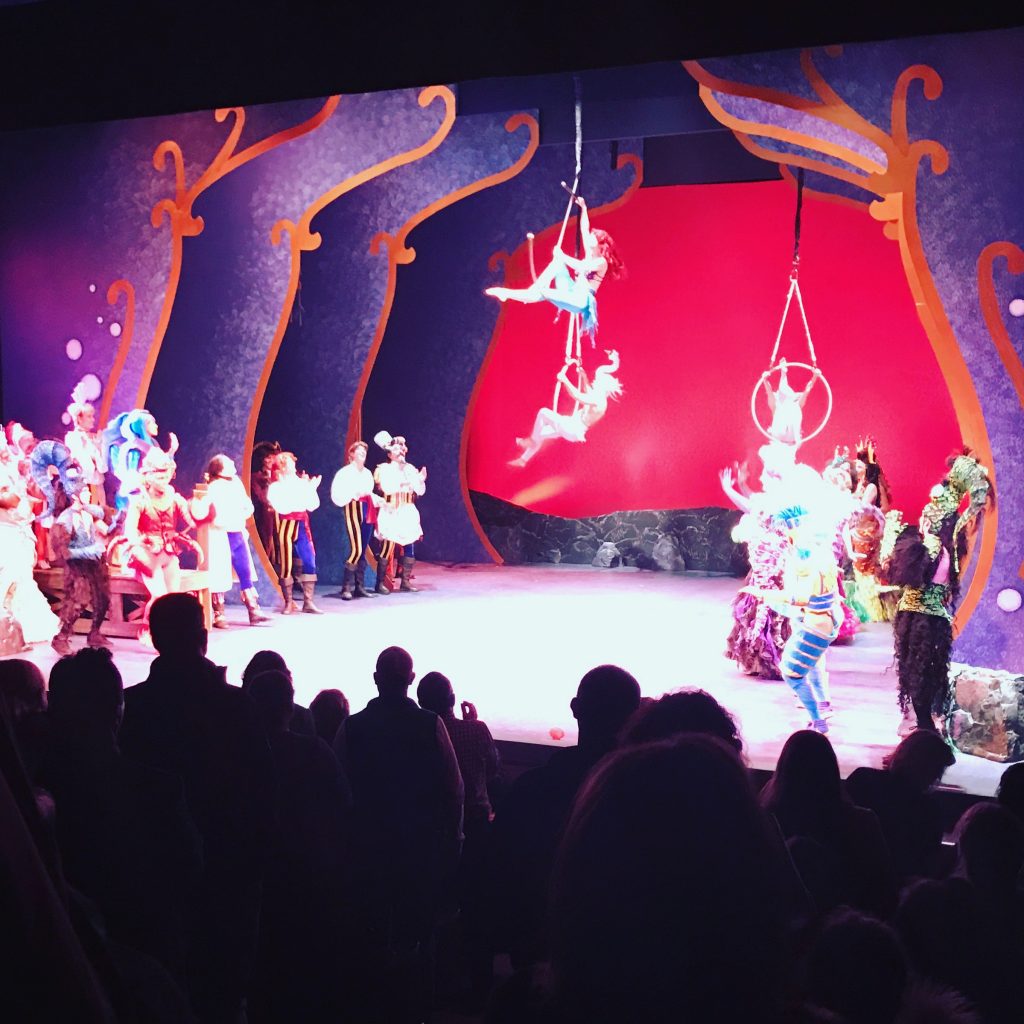 They Said No Photos…But Common Look How Cool That Looks
They Said No Photos…But Common Look How Cool That Looks
The aerial choreography gave the illusion of being in the water in key scenes, appropriately fitting the aquatic theme of the story.
It was completely unexpected to come across such a high caliber production in regional theatre.
The hip-hop and Jazz ensemble performance was also a treat.
The group’s vocalist lectured throughout on common elements of African-American music. In particular the components of story-telling, improvisation, and call-and-response were empathized and demonstrated throughout the presentation.
Of note, was the history behind the song Amazing Grace, often associated with African-American spirituals.
This composition was actually written by a former slave ship captain who later became an abolitionist following his ghastly experiences transporting slaves across the Atlantic.
Trish’s school utilizes a building that dates back to 1897 known as “The Glendale School.” Originally built as a one-room schoolhouse, it is the oldest structure still in use for educational purposes in North Carolina.
According to National Park Service Records, it “was moved to its present location in 1951” and “remodeled at this time into its current Colonial Revival style” and “reconfigured into a two-room side-gable building.”
Today, the structure serves as classrooms for the orchestra and choral programs.
Before departing toward Raleigh, I asked Dr. B a question I had been pondering.
“Given the option to improve one thing to make living with blindness easier, what would you choose?”
He took a careful moment of contemplation to consider the question.
This caught me off guard. For some reason I had expected him to have a unique answer off the tip of his tongue, but it seemed as if he had never given this question any thought.
Had his graceful independent living left him no obvious improvements to dream of?
“I wish the public transportation in Fayetteville was more robust. Back in Madison, I was spoiled with bus routes that went everywhere and I never waited more than 10 minutes for a bus to arrive.
I am thankful it has improved though. When I first got here the last bus finished around 6:00pm. It was difficult to stay on campus in the evening or go downtown. Now the buses run much later.”
I was taken aback by the fact that one improvement he sought was not something unique to a blind person, but an improvement that anyone would yearn for.
“Also, I wish voice at the crosswalks telling me to ‘wait’ or ‘cross’ sounded less authoritative,” he jokingly added.
// Oliver – Day 41 – Fayetteville


